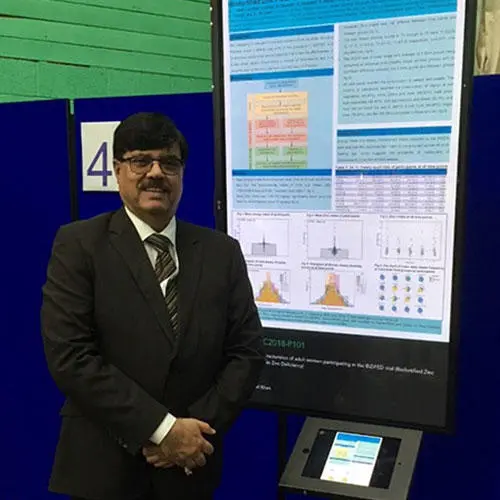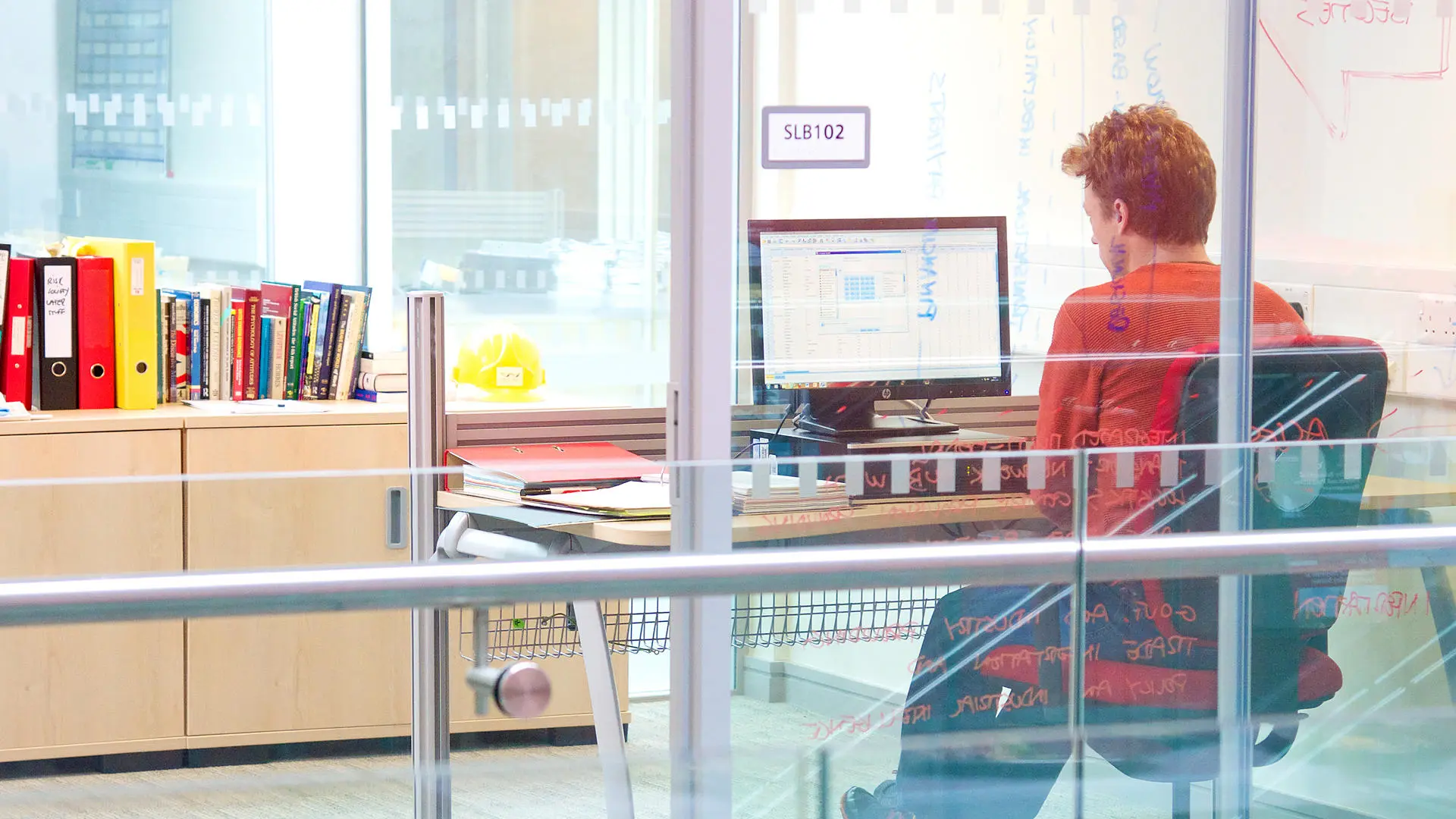Capacity building by working in partnership with researchers in Pakistan
As we enter the last six months of the BiZiFED project, we are busy with data analysis and dissemination plans, but also taking time to reflect on our original objectives and what we have achieved in two years. An important aspect of the project was capacity building for researchers in Pakistan. The specific objective was to establish a long-term research partnership to develop local capacity, infrastructure and expertise for further research into sustainable and culturally sensitive solutions to micronutrient deficiencies.
BiZiFED was funded by the Biotechnology and Biological Sciences Research Council under the Global Challenges Research Fund programme, a £1.5 billion fund announced by the UK Government in late 2015 to support cutting-edge research that addresses the challenges faced by developing countries. GCRF aims to strengthen capacity for research, innovation and knowledge exchange in the UK and developing countries through partnership with excellent UK research and researchers.
We were fortunate to have existing partnerships with Khyber Medical University (KMU) and the Abaseen Foundation, which enabled us to develop a robust and achievable proposal for this challenging study. Staff from these institutions were instrumental to the success of our randomised controlled trial in the brick kiln communities around Peshawar. They were responsible for community engagement, participant recruitment, randomisation, flour distribution, data collection, sample processing and storage.
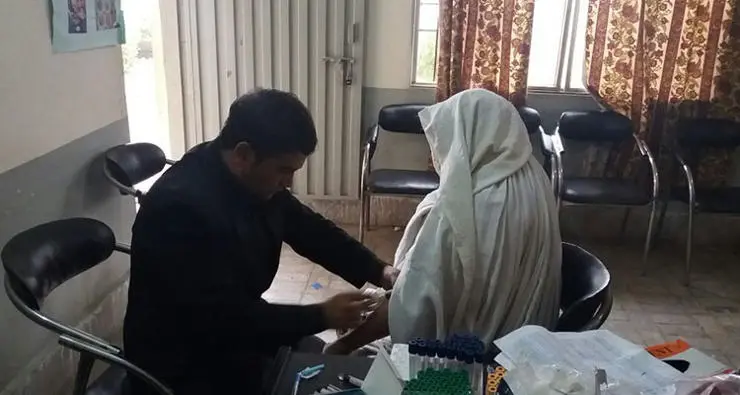
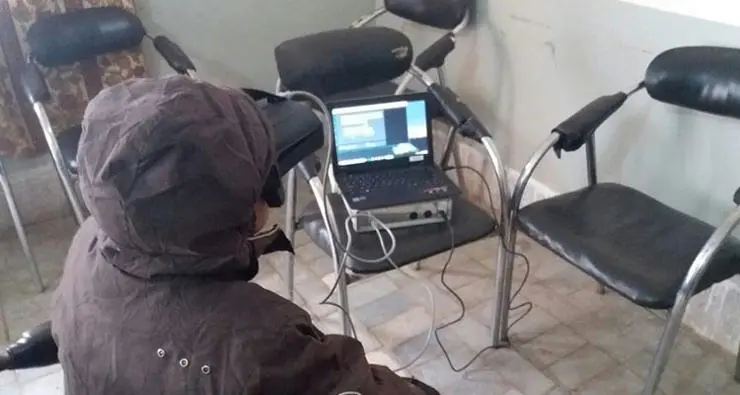
The study protocol was clearly documented and this provided a blueprint for the fieldwork and laboratory procedures. Blood, hair and nail samples were collected for micronutrient analysis throughout the trial. KMU researchers and technicians were trained in a variety of techniques to minimise contamination and protect the integrity of the samples. We jointly developed practical documents to operationalise the study protocol: data collection sheets, sample recording sheets, quality assurance procedures etc.
Dr Jaffar Khan (Assistant Professor, KMU) visited two specialist laboratories in the United States in May 2017. He received training on techniques to measure two novel biomarkers of zinc status: DNA fragmentation (using the comet assay) and dark adaptometry. Jaffar was then able to train other members of his research team at KMU.
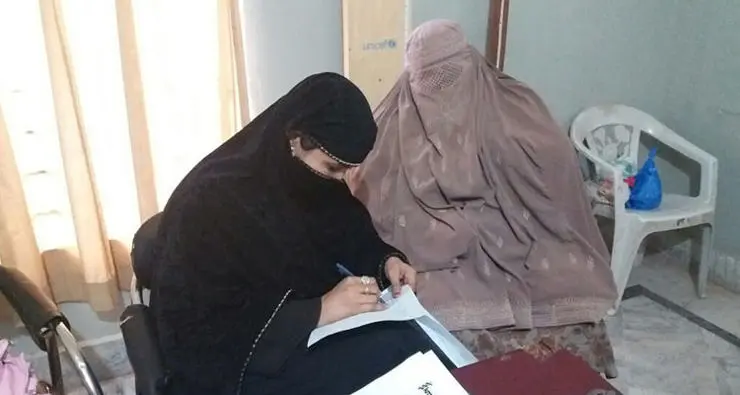
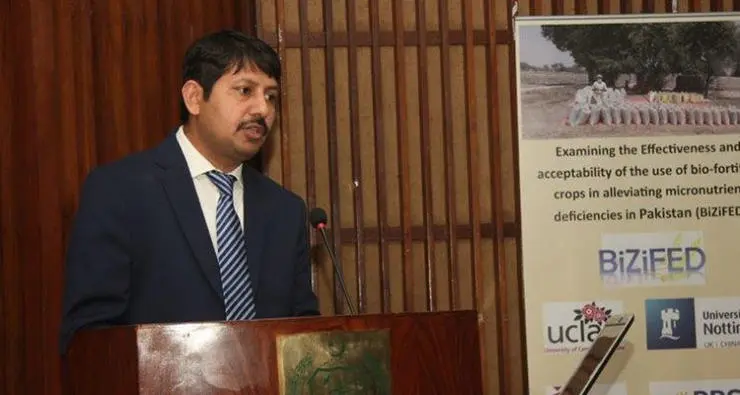
Dr Munir Zia presenting at NARC research symposium
It was essential to have a female researcher on the team for cultural reasons. This proved to be difficult because many women are expected to give up work after they get married in Pakistan. Two female nutritionists were recruited and left before the trial began. The third female nutritionist was married but able to continue working. She was trained in dietary assessment methods and nutrient analysis using Windiets software. Her presence helped to increase compliance and retention during the trial. The men were happier for their wives to attend the health centre alone. The women felt more comfortable talking to a female researcher, since the 24-hour recall is conducted as an interview. The nutritionist also collected the hair samples (in a private room) because the women keep their hair covered and it would not be appropriate for a male researcher to be present.
After the trial, the research team conducted semi-structured interviews to understand the views and perceptions of community members in relation to biofortified flour. Interview skills training was provided during our mid-project meeting in March 2018. We developed the semi-structured interview questions collaboratively.
Finally, our partners in Pakistan have contributed to international dissemination activities. The whole research team participated in our research symposium at the National Agricultural Research Centre (NARC) in Islamabad, Pakistan in March 2018. Dr Munir Zia, our industry partner from Fauji Fertilizer Company, presented at the Agriculture, Nutrition and Health Academy in Accra, Ghana in June 2018. Professor Mukhtiar Zaman, our academic partner from Khyber Teaching Hospital and the Abaseen Foundation, presented at the Nutrition Society Summer Conference in Leeds, UK in July 2018.
So, as we reflect on this foundation level project, we think we can be pleased with the progress we have made. We have helped to develop a strong and skilled research team at KMU. We have worked in partnership with local institutions and stakeholders to conduct high quality interdisciplinary research in remote and marginalised communities. We have helped bring forward a potential strategy to alleviate micronutrient deficiencies in Pakistan.
In our future collaborative projects, we would like to continue capacity building and capacity strengthening through exchange of knowledge between UK and Pakistan researchers. There is potential to increase the delivery of excellent science in Pakistan with investment in infrastructure, human resources and training, and access to multidisciplinary and multinational networks.
Here’s to BiZiFED 2!
